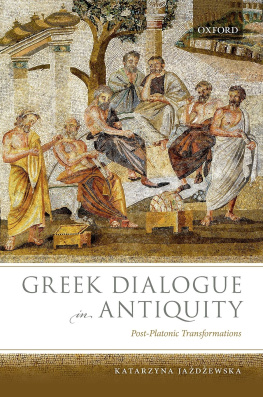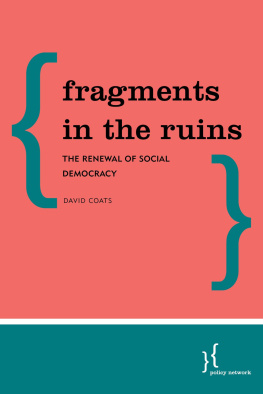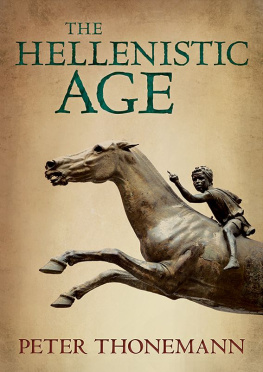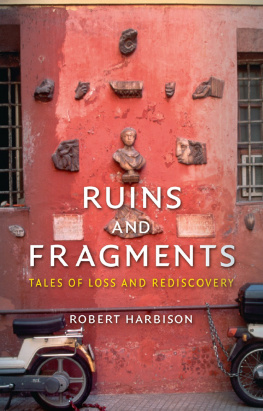Praise for City of the Sharp-Nosed Fish
[Parson] brilliantly conveys both the difficulty of working on the material and the excitement of the historical detective involved in the thrill of the chase
William Dalrymple, New Statesman
A wonderfully rich portrait of the people of Oxyrhynchos
Sunday Times
Parsons has entertainingly revived a noisy, gossiping world of migrant Greeks who lived through the decline of Rome and the rise of Christainity
The Times
A picture of life in the city in intimate detail, from the profound to the mundane
Herald
A learned and engrossing book
Daily Telegraph
Peter Parsons leads his readers on an adventure, peeling back the past and finding that the ancients were in many ways just like us
Good Book Guide
[A] captivating study
Catholic Herald
[Parsons] writes with tremendous verve and wit, and with memorable turns of phrase
Mary Beard, Times Literary Supplement
CITY OF THE
SHARP-NOSED FISH
Greek Papyri Beneath the Egyptian Sand
Reveal a Long-Lost World

PETER PARSONS

In memory of
BARBARA MACLEOD
20.1.194525.7.2006
without whom, nothing
CONTENTS
ILLUSTRATIONS
TIMELINE






ROMAN EMPERORS
Roman emperors from Augustus to Constantine. Would-be emperors recognised for a time in Egypt are in italic. Brackets indicate emperors who ruled jointly.


For details see Dietmar Kienast, Rmische Kaisertabelle (2nd edn, Darmstadt 1996).
EGYPTIAN MONTHS AND YEARS
Thth (Sebastos) | 29 August27 September |
Phaphi | 28 September27 October |
Hathyr | 28 October26 November |
Choiak | 27 November26 December |
Tybi | 27 December25 January |
Mecheir | 26 January24 February |
Phamenth | 25 February26 March |
Pharmouthi | 27 March25 April |
Pachn | 26 April25 May |
Payni | 26 May24 June |
Epeiph | 25 June24 July |
Mesor | 25 July23 August |
Five additional days | 2428 August |
The Egyptian year (as reformed to suit the Julian calendar) consisted of twelve months of 30 days each, plus five additional days at the end. In leap years there were six additional days, so that Thth 1 = 30 August, and all Julian dates were pushed forward one day until the Julian intercalary day 29 February brought them back into step. Phamenth 5 always = 1 March.
Year 1 of a king or emperors reign lasted from his accession until the end of the current Egyptian year. Year 2 began on the next Thth 1.
NOTE ON SOURCES
This book draws its material largely from published Greek papyri. The principal relevant publication is the series The Oxyrhynchus Papyri , vols. ILXX (London 18982006). Documents published there are referred to simply by volume and item-number, for example 42.3052 = The Oxyrhynchus Papyri , vol. XLII, no. 3052. Within any one text, line-numbers are indicated in Arabic numerals (42.3074.2 = vol. XLII, no. 3074, line 2) and column-numbers (where necessary) in Roman numerals (2.237 vii 20 = vol. II, no. 237, column 7, line 20).
For a key to other publications of papyri, see Bibliography , . The translations of documents and literary sources quoted in this book are my own except where otherwise indicated.
Within translated documents, italic type in square brackets indicates words restored by editors in spaces where the papyrus is damaged, and italic type in angle brackets indicates words inserted by editors to correct an omission by the original scribe.
In transliterations of Greek words, and represent the Greek long vowels eta and omega. In spelling the names of ancient people and places, I have been inconsistent: most Greek names appear with their Greek termination, for example Isidoros not Isidorus, but names widely familiar in their Latin form retain that form, thus Herodotus (not Herodotos), Strabo (not Strabn).
GLOSSARY
agora | the marketplace |
amphodon | quarter, administrative subdivision of a city |
archidikasts | Roman official, Chief Justice |
aroura | basic unit of land-area (0.68 acres) |
artaba | basic measure of capacity (standard artaba = about 8 gallons or 1 bushel) |
attik | Attic drachma, Greek name for denarius |
basilikos grammateus | royal scribe, deputy to the strategos |
boul | town council |
choinix | measure of capacity (40 or 48 choinikes make 1 artaba ) |
chmatikon | tax for maintenance of dikes |
chra | the country, i.e. Egypt excluding Alexandria |
chous | liquid measure of variable content (for wine, perhaps 3 pints) |
comarch | head of administration in each village |
conventus (Latin) | travelling assizes conducted by the Prefect |
dekaprtoi | ten-man commission which took over the work of the sitologoi |
denarius (Latin) | standard Roman silver coin, equivalent to a tetradrachm |
dioikts | Roman head of the financial administration |
drachma | unit of money and weight; as currency, normally circulating in the form of 4-drachma pieces ( tetradrachms ) |
ephebe | boy who (from age fourteen) qualifies to belong to the gymnasium |
epistratgos | Roman governor of one of the three or four main divisions of Egypt |
Next page


















